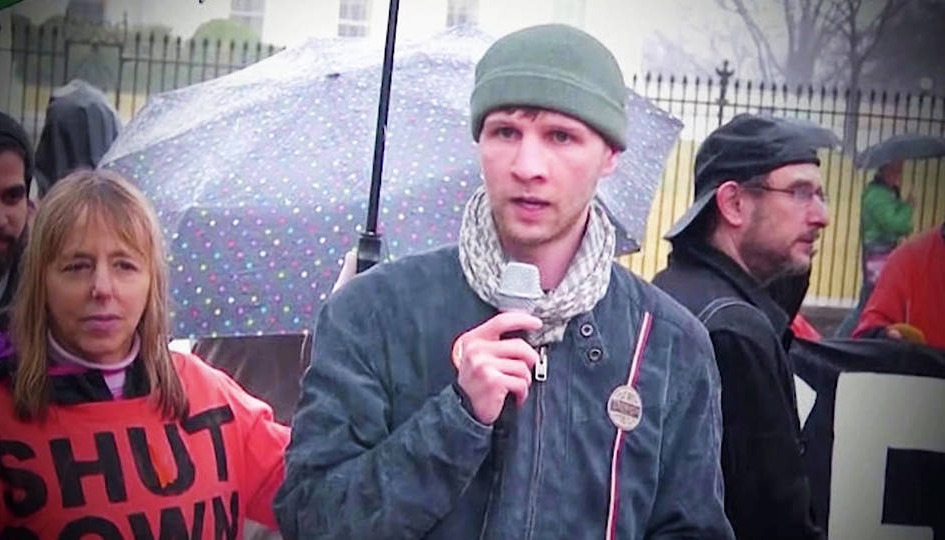
Daniel Hale at demonstration at White House (Photo: file)
Washington, July 23 (RHC)-- The Biden administration is urging a federal court to sentence drone whistleblower Daniel Hale to at least nine years in prison for leaking classified information about the U.S. targeted assassination program, according to a report in the Dissent newsletter.
In March, Hale pleaded guilty to leaking documents about the U.S. drone program, which he participated in while working for the miltary. He will be sentenced on July 27th.
In 2013, after four years in the Air Force working as an intelligence analyst at the National Security Agency, Daniel Hale, now 33-years-old, became a contractor at the National Geospatial-Intelligence Agency. According to court records, as he was transitioning to the private sector, Hale reached out to a reporter who had just published a book about U.S. drone warfare. While the reporter is unnamed in court records, the description matches Jeremy Scahill, a founding editor of the Intercept.
Over the next year, according to court records, Hale shared top-secret documents with the reporter, who published them online and in a 2016 book. Scahill published a series on drones in the Intercept and wrote a book called “The Assassination Complex: Inside the Government’s Secret Drone Warfare Program.” The documents detailed the protocol for ordering drone strikes and shed light on civilian casualties and internal military debates over the accuracy of intelligence.
A chapter in the book, “Why I Leaked the Watchlist Documents,” was written by “Anonymous.” Hale later admitted to writing the chapter anonymously.
“These documents detailed a secret, unaccountable process for targeting and killing people around the world, including U.S. citizens, through drone strikes,” Intercept Editor in Chief Betsy Reed said in a statement after Hale’s indictment. “They are of vital public importance, and activity related to their disclosure is protected by the First Amendment.”

